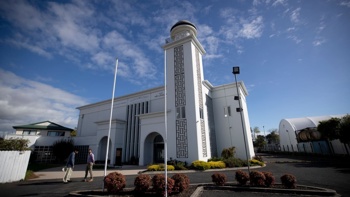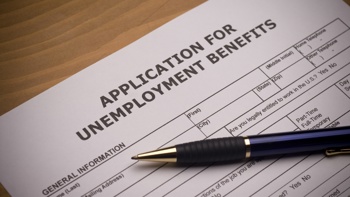The Government is being challenged to put a moratorium on freshwater exports in a nationwide protest.
LISTEN ABOVE: Peter Richardson, lawyer for Bung the Bore, spoke to Larry Williams
A 15,000-signature petition was delivered to Parliament this afternoon, and protests are being held outside council offices around the country.
The petition was accepted on Parliament's steps by Labour's environment spokesman David Parker and Green Party water spokeswoman Catherine Delahunty.
Jen Branje, the founder of protest group Bung the Bore, said communities such as Havelock North were struggling to get access to clean, safe water.
"Yet bottling plants come here and take our pure, deep groundwater for free. And while they're taking it, we get nothing."
"We ask why we're forced to drink chlorinated and fluoridated water from our taps while our pure water is shipped off to other countries."
Brunje doubts the Government will be particularly open to their call because it's such a contentious issue.
"The whole lot needs addressing and I don't believe that we currently have anybody that has got the fortitude to do that."
Parker said claims by Environment Minister Nick Smith that trillions of litres of water was produced in New Zealand each year was false.
"He counts the water coming out of national parks, the water in those floods in Auckland that we just saw in the weekend.
"In truth, our very clean water that is clean enough to bottle or drink without treatment is a precious and scarce resource."
He said it was unfair that a public resource could be used for private profit without consultation and without any benefits to the local community.
"Water is a public good. If people are using a public good for private profit, then some of that should come back to the public," he said.
Delahunty called for greater protections for aquifers, and said there should be a price on commercial use of water.
"You want to make a profit out of it, you can pay for it," she told a crowd outside Parliament.
150 people rallied outside Environment Canterbury in Christchurch today. 12-year-old Livvie Kingi was among them with her grandfather.
She said water needs to be protected for swimming and drinking.
"I went to Hurunui recently with my family and right before they said it was not healthy water, so I got sick that day.
"The next day on the news it said Hurunui was one of the worst rivers in New Zealand and we had no idea."
Around 50 Aucklanders turned up to the CBD's Aotea Square in support of the petition.
Protester Frankie Bullen said she's concerned that clean water's leaving the country for cheap while kiwis still have to pay.
"And yet corporates can go ahead and get a manual consent for I think around $500 a year to extract as much water as they want to bottle and sell for a profit."
Bung the Bore was formed in Ashburton, where it successfully challenged a plan by the district council to sell the right to extract around 40 billion litres of water.
It said 74 bottling plants in New Zealand had permits to take freshwater for export, and some paid as little as $500 to local councils to get access to the water.
But Smith has previously said just 23 companies were using the permits</a> and it was a niche industry.
He opposed stricter rules for exporters, saying the bottled water industry used 1 per cent of the freshwater extracted each year and that water shortages were isolated.
A moratorium or a charge on water would raise issues of fairness and economic cost, Smith said. A total ban would mean some freshwater users were cut off while others were not, and a price on water would add large costs to extensive water users such as horticulture or dairying.
Take your Radio, Podcasts and Music with you









